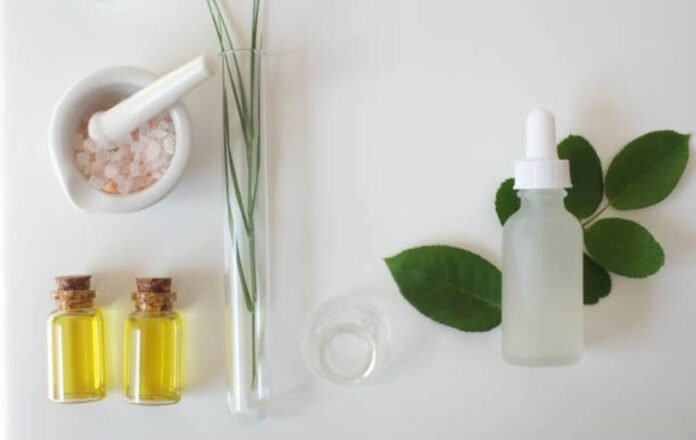In today’s beauty world, more people are turning away from synthetic chemicals and moving towards natural skincare solutions. Among these, natural oils stand out for their ability to nourish, hydrate, and protect the skin without the risks often linked to synthetic ingredients. But can natural oils truly replace synthetic skincare ingredients? Let’s explore how oils derived from plants can serve as powerful, safe, and effective alternatives.
Why People Are Moving Away from Synthetic Skincare
For decades, skincare brands relied heavily on synthetic compounds like parabens, silicones, and artificial fragrances. While these ingredients can make products cheaper and longer-lasting, they often come with drawbacks:
- Skin irritation: Harsh chemicals may trigger redness, dryness, or allergic reactions.
- Environmental impact: Synthetic compounds can be harmful to ecosystems when washed off into waterways.
- Health concerns: Certain synthetic preservatives and additives are linked to long-term health risks.
This shift in awareness has encouraged consumers to embrace natural skincare oils that offer similar (if not better) benefits without the side effects.
The Science Behind Natural Oils in Skincare
Natural oils are extracted from seeds, fruits, and plants, carrying concentrated nutrients such as essential fatty acids, vitamins, and antioxidants. Unlike synthetic fillers, oils have structures closer to our skin’s natural sebum, which makes them more compatible and easily absorbed.
For example:
- Jojoba oil closely mimics skin’s natural oil production, balancing both dry and oily skin types.
- Rosehip oil delivers vitamin A (retinol’s natural counterpart) without the irritation of synthetic retinoids.
- Argan oil is rich in vitamin E, promoting elasticity and reducing fine lines.
Comparing Natural Oils and Synthetic Ingredients
1. Moisturizers: Oils vs. Silicones
- Synthetic option: Many creams use silicones to create a temporary smooth feel on the skin’s surface.
- Natural alternative: Oils like jojoba, almond, or avocado oil not only hydrate but also repair the skin barrier, offering long-term nourishment instead of a quick fix.
2. Anti-Aging: Retinol vs. Rosehip Oil
- Synthetic option: Retinol, a lab-made vitamin A derivative, can improve wrinkles but often causes peeling and dryness.
- Natural alternative: Rosehip oil naturally contains vitamin A and C, encouraging cell turnover without the harsh side effects.
3. Brightening: Chemical Lighteners vs. Vitamin C Oils
- Synthetic option: Hydroquinone, a chemical brightening agent, can lighten dark spots but may irritate the skin.
- Natural alternative: Oils like sea buckthorn or rosehip provide natural vitamin C, brightening skin while fighting free radicals.
4. Preservatives: Synthetic vs. Antioxidant Oils
- Synthetic option: Parabens extend shelf life but are increasingly criticized for possible hormone disruption.
- Natural alternative: Oils high in antioxidants (like jojoba and tea tree) naturally resist oxidation and microbial growth, offering a safer way to maintain product stability.
Top Natural Oils That Can Replace Synthetic Skincare Ingredients
1. Jojoba Oil
Known for its similarity to human sebum, jojoba oil balances oil production, soothes irritation, and works well as a moisturizer.
2. Rosehip Oil
Packed with essential fatty acids, vitamins A and C, rosehip oil supports collagen production and reduces scars.
3. Argan Oil
Often called “liquid gold,” argan oil is rich in vitamin E and antioxidants, making it ideal for anti-aging routines.
4. Tea Tree Oil
A natural antibacterial and antifungal, tea tree oil can replace harsh synthetic acne treatments.
5. Sea Buckthorn Oil
Loaded with vitamin C and omega fatty acids, it promotes skin regeneration and combats pigmentation.
How to Transition from Synthetic to Natural Oils
Switching from synthetic-heavy skincare to natural oils requires patience and understanding. Here’s how to do it effectively:
- Start slow: Introduce one oil at a time to test compatibility.
- Patch test: Always check for sensitivities before applying oils to your face.
- Use blends: Some oils work better when blended—like jojoba and rosehip for hydration and repair.
- Adjust routine: Replace step by step—swap synthetic moisturizers with plant oils, then move on to serums and treatments.
Benefits of Using Natural Oils Over Synthetic Ingredients
- Better skin compatibility: Oils integrate with the skin’s natural barrier.
- Fewer side effects: Minimal irritation compared to harsh chemicals.
- Rich in nutrients: Oils provide vitamins, minerals, and antioxidants directly from plants.
- Eco-friendly: Plant-based oils are renewable and biodegradable.
- Versatility: A single oil can serve multiple functions (moisturizer, anti-aging serum, cleanser).
Addressing Common Myths About Natural Oils
- “Oils clog pores.” → Many natural oils like jojoba and rosehip are non-comedogenic.
- “They can’t be as effective as lab-made ingredients.” → Studies show oils can deliver equal or better results than synthetic counterparts.
- “Natural means safer for everyone.” → While generally safer, some oils (like tea tree) should be used in moderation.
Final Thoughts
Natural oils aren’t just trendy, they’re scientifically backed alternatives to synthetic skincare ingredients. With their rich nutrient profiles, skin compatibility, and eco-friendly benefits, they offer a more holistic approach to skincare. Whether you’re replacing synthetic moisturizers, anti-aging serums, or acne treatments, oils like jojoba, rosehip, and argan can transform your skincare routine naturally.
By making the switch, you not only care for your skin but also reduce your environmental footprint, proving that nature often knows best when it comes to beauty.



